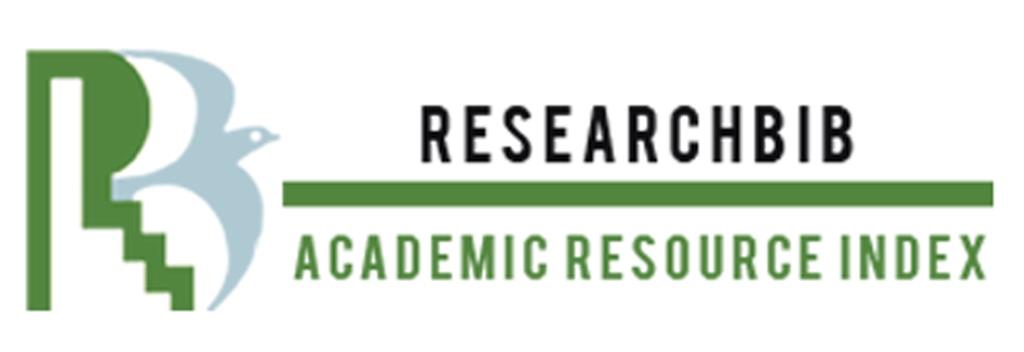ENHANCING VOCABULARY THROUGH ARTIFICIAL INTELLIGENCE
Abstract
In today’s rapidly advancing world, language proficiency has become a cornerstone of personal and professional success. Among the key components of mastering a language is building a robust vocabulary. Thanks to the emergence of Artificial Intelligence (AI), the process of expanding one’s lexicon has been revolutionized, offering innovative, efficient, and personalized methods. Below, we explore how AI can assist individuals in enriching their vocabulary.
Downloads
References
Ekman, P. (1999). Emotions Revealed: Recognizing Faces and Feelings to Improve Communication and Emotional Life. New York: Henry Holt and Company.
Wierzbicka, A. (1999). Emotions Across Languages and Cultures: Diversity and Universals. Cambridge: Cambridge University Press.
Ganieva, H. (2014). The Uzbek Cultural Code: Understanding and Expressing Emotions. Tashkent: Uzbekistan Publishing House.
Kagan, J. (2007). What is Emotion? History, Measures, and Meanings. New Haven: Yale University Press.
Kornilov, O. (2010). The Russian Soul: A Study in Cultural Psychology. Moscow: Russian Academy of Sciences.
Азимбаева, Д. А. (2018). The problems of translating of words and word combinations of national coloring used in fairy tales. Молодой ученый, (3), 225-227.
Muratkhodjaeva, F. X. (2022). Cognitive-semantic analysis of the meanings of words and phrases in English and Uzbek and their translation problems. Galaxy International Interdisciplinary Research Journal, 10(6), 385-387.
Muratkhodjaeva, F. X. (2022). Linguistic definition of conversion as a method of formation of words and phrases in English linguistics. Confrencea, 2(2), 61-64.
Азимбаева, Д. А. (2019). Важность использования аутентичного материала при обучении чтению. NovaInfo. Ru, 1(96), 183-186.
Азимбаева, Д. А. (2019). Инновации и перспективы в изучении языка в современной системе образования. NovaInfo. Ru, (109), 73-74.
Usmonovich, R., Gulyamovich, S., Coals, K., & Kurbonova, R. Sh. (2024). Analysis of the operating logic of an educational simulator based on virtual laboratory. European Science, (1)69, 37–41. ООО «Олимп».
Jalilova, D., Kurbonova, R., Erejepov, M., & Nematov, L. (2023). Development and analysis of logical scenario design in virtual reality laboratories for higher education institutions. In E3S Web of Conferences (Vol. 461, p. 01097). EDP Sciences.
Niyozov, N., Bijanov, A., Ganiyev, S., & Kurbonova, R. (2023). The pedagogical principles and effectiveness of utilizing ChatGPT for language learning. In E3S Web of Conferences (Vol. 461, p. 01093). EDP Sciences.
Usmonovich, R., Kurbonova. R. Sh., Tursunboyeva, S. Z., & Rajabovich, G. S. (2024). Reprocessing simulation elements in the rendering section for the fundamentals of power supply. Наука, образование и культура, (1)67, 21–23. ООО «Олимп».
Usmonovich, R., Kurbonova. R. Sh., Tursunboyeva, S. Z., & Rajabovich, G. S. (2024). Optimizing the coding approach for educational simulators in electrical power supply basics. Наука, образование и культура, (1)67, 24–26. ООО «Олимп».
Rakhmonov, I., & Kurbonova, R. (2024). Integrating simulators for language learning in technical higher education: Insights from developed nations and guidelines for Central Asian countries including Uzbekistan. Modern Science and Research, 3(1), 1–4.
Kurbonova, R. Sh. (2021). Pros and cons of online language learning in Uzbekistan. Academic Research in Educational Sciences, 2(CSPI conference 2), 445–451. ООО «Academic Research».
Murodkhodjaeva, F. (2022). Cognitive-semantic analysis of words and word combinations and their expression in translated texts. Asian Journal of Research in Social Sciences and Humanities, 12(7), 55-58.
Муратходжаева, Ф. Х. (2019). Трудности перевода английских фразеологических единиц на узбекский язык. NovaInfo. Ru, (109), 39-41.
Мурадходжаева, Ф. Х. (2018). Specific features of conveying social issues in American and Uzbek short stories. Молодой ученый, (3), 234-236.
Xotamovna, M. F. (2024). PROBLEMS IN SIMULTANEOUS TRANSLATION AND THEIR SOLUTIONS. SCIENTIFIC APPROACH TO THE MODERN EDUCATION SYSTEM, 3(28), 72-74.
Xotamovna, M. F. (2024). PHENOMENOLOGY AND THINKING OF THE HUMAN PSYCHE. IMRAS, 7(9), 193-195.
















